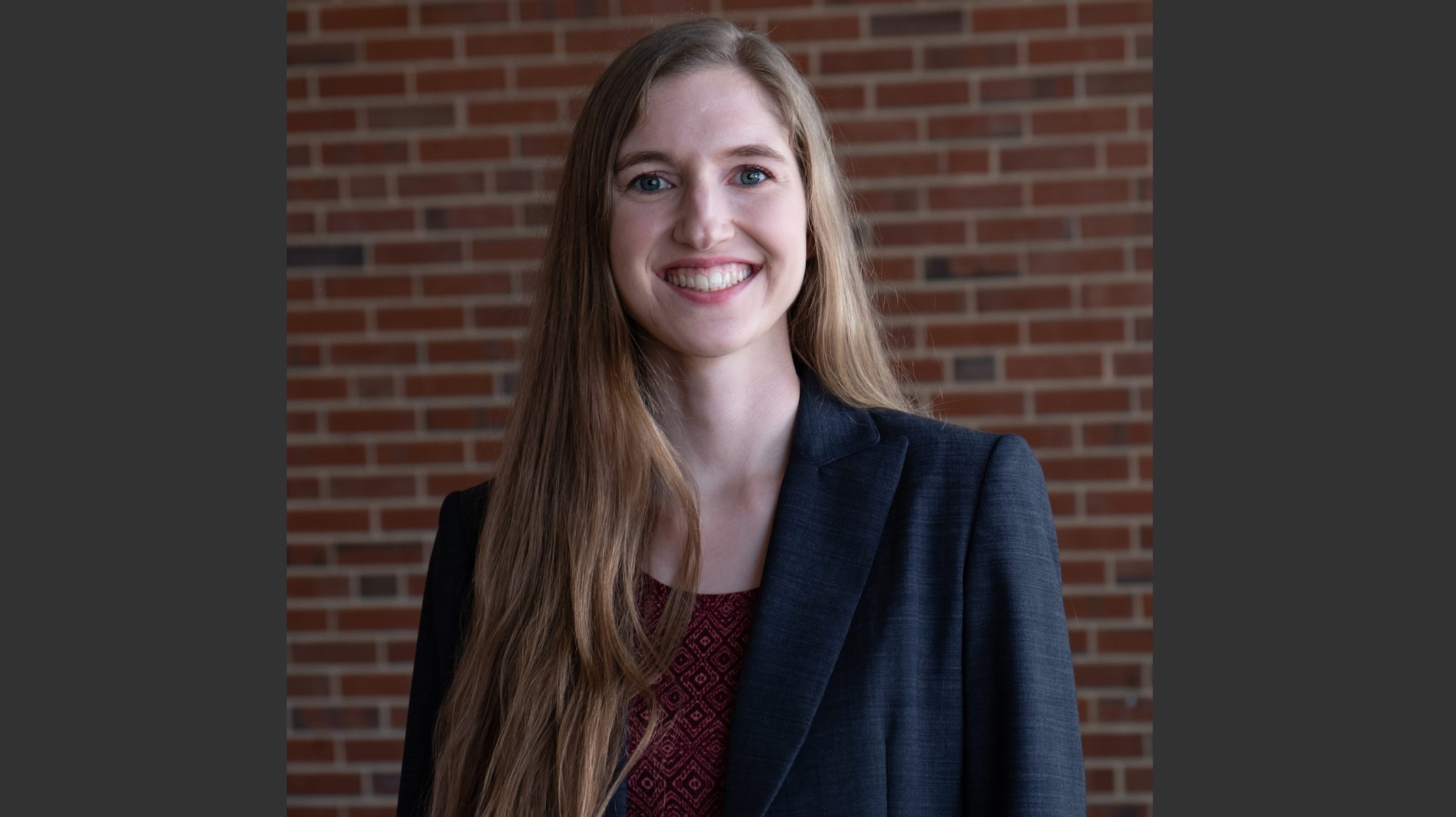Researcher Spotlight – Faith Johnson

2019-20 Global Change Fellow
PhD Student, Department of Civil, Construction and Environmental Engineering
Advisor: Dr. Beth Sciaudone
Every year the Southeast Climate Adaptation Science Center funds a multi-disciplinary cohort of Global Change Fellows representing colleges across NC State University. Here are some highlights about 2019-20 Fellow, Faith Johnson, and the applied research she’s conducting.
About You
What do you study?
I’m a PhD student studying civil engineering, specifically coastal engineering. I primarily use remote sensed data to study coastal systems such as atolls (remote coral ring islands in the tropics and near-tropics) and barrier islands (such as the barrier islands along the coast of North Carolina). I worked on a project building a global atoll database and doing morphometrics analysis on the atoll to try and find regional trends and similarities. For the barrier islands in North Carolina I am focusing on habitat mapping and modeling change and future trends for Pea Island south of Oregon Inlet.
What (or who) influenced you to go into this field of study?
Both of my parents are civil engineers by training and I grew up fascinated by their work. I was always more interested in the water and environmental side of civil engineering and during undergrad I took all the water-related classes I could. In my sophomore year, I studied abroad in Swansea, Wales in the UK. Swansea University sits right beside Swansea Bay, a bay with a maximum tidal range of ten meters. I had never lived so close by the ocean before and I was fascinated. I knew that I need to learn more about the coast and coastal processes. When I was looking into graduate programs, coastal engineering was one of the primary areas I looked at and the one I ultimately chose.
What do you think is the most pressing issue related to global change?
From a human time-scale perspective, I think that the water-food-energy nexus and the associated challenges are extremely pressing. A large percentage of the world’s population lives near coasts and coastal-related global change (rising sea level, changing frequency and magnitude of extreme storm, changing ocean temperature and acidity) can affect all areas of the water-food-energy nexus. My research is specifically related to resiliency from storms that can affect coastal populations’ access to clean water, food, and energy.
What is your dream job?
My dream job would allow me to split my time between the field, lab, and office. I would always be working on new and interesting things that will help the world be a better place. I would also love a job where I could travel and see different coastal systems in person and potentially work in interesting remote locations.
About Your Research
What is the most important thing that you’ve learned?
The most important thing that I’ve learned is that in grad school, all those times of hitting your head against a wall are worth it when you make that breakthrough.
Who will benefit from your research?
The primary beneficiary of my research are the local coastal communities including communities here in North Carolina. Also, general scientific knowledge will allow us to better understand potential response of these systems to changing climate (e.g., sea level rise). We first have to understand underlying processes driving landscape change to understand how they will change in future.
How can your research be used to inform management decisions?
The research group I’m in works with NC Department of Transportation (DOT) to predict which areas of the NC 12 highway along the Outer Banks are the most vulnerable. The NC 12 highway is the primary evacuation route for much of the Outer Banks and is very important during hurricane season. By predicting the areas where the dunes are likely to be overwashed and thus putting the roads at risk, the NC DOT can be informed as to where supplies need to be deployed immediately before and after the storm. Also, by looking at global atoll islands, we might be able to do first-order predictions of future changes of these islands.
How would you describe your research to a 3rd grader?
There are lots of satellites flying overhead and some of those are used to take pictures of the earth. I am able to use those pictures to learn more about areas on earth that are hard to get to, like really remote islands in the Pacific and Indian oceans and areas closer to home like the Outer Banks here in North Carolina.
About Your Global Change Fellow Experience
How do you expect the SE CASC Global Change Fellows Program to impact you and your work?
The SE CASC Global Change Fellows Program has opened my eyes to a more interdisciplinary approach to research. The SE CASC itself has people from a variety of backgrounds working for it as does the Global Change Fellows Program. It is definitely making me focus on a more collaborative approach to my research.
What has been the most rewarding part of being a SE CASC Global Change Fellow?
I think the best part about a being in a cohort like the SE CASC Global Change Fellows Program is the perspective on different environmental issues that all the Fellows bring to the table. We have different backgrounds and research focuses and yet we all have a core interest in global change that ties us together.
What advice would you give to a student that is interested in getting involved in your field?
I would recommend getting involved in undergraduate research. It’s a great way to learn more about a specific field and project. Even if it’s not exactly what you want to do, you can learn so much from doing research. It’s also a great way to get to know your professors better and learn more about what research is like. You can start in freshman year if you want. The earlier the better.